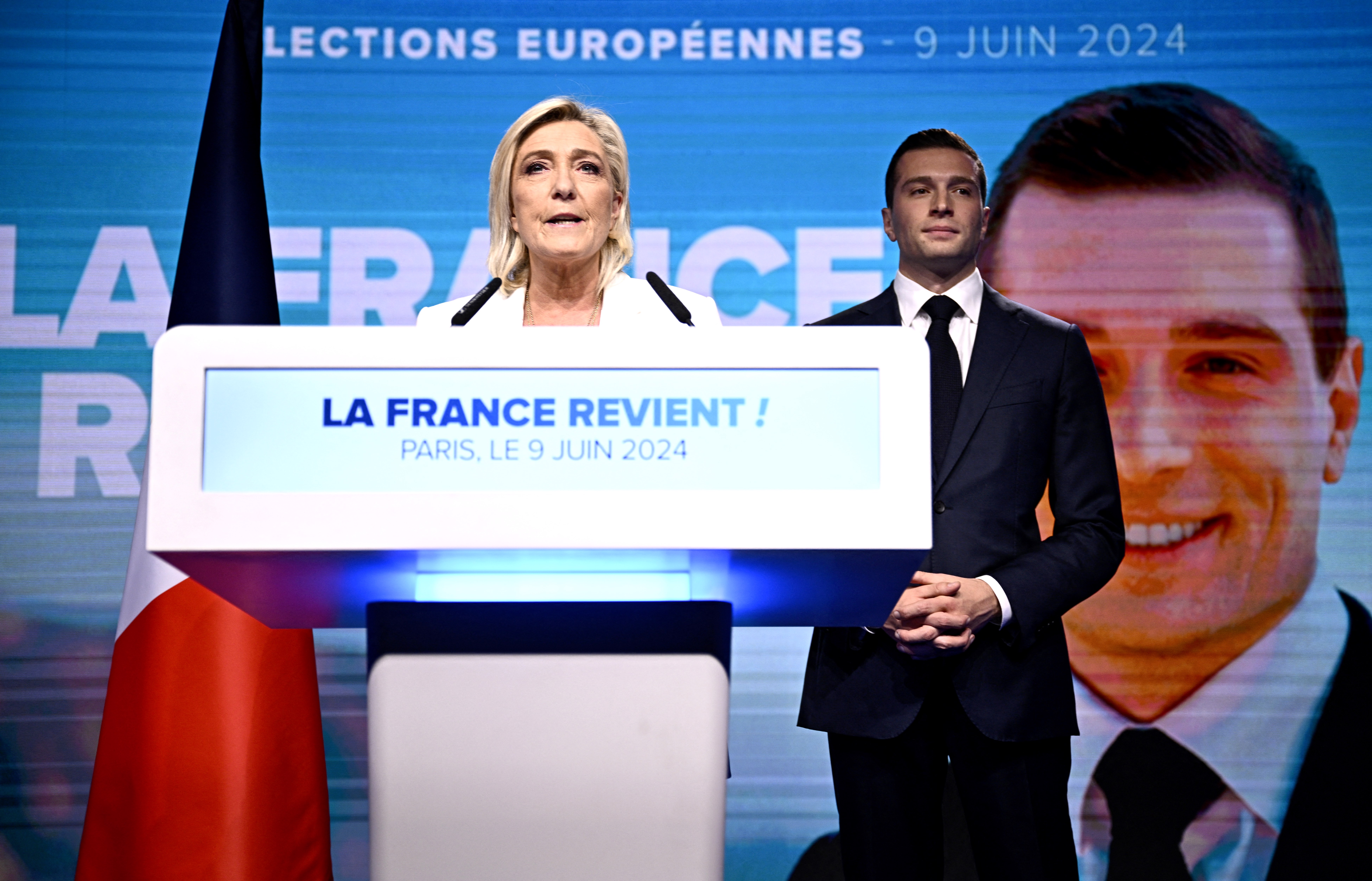Right-wing parties have gained ground at the European Parliament in election results that rattled the traditional powers.
French President Emmanuel Macron made a surprise call for early legislative elections after his party suffered a heavy defeat from the right-wing National Rally party. In Germany, support for Olaf Scholz’s center-left Social Democrats sank to a projected 14 percent, behind the right-wing Alternative for Germany, which surged into second place.
